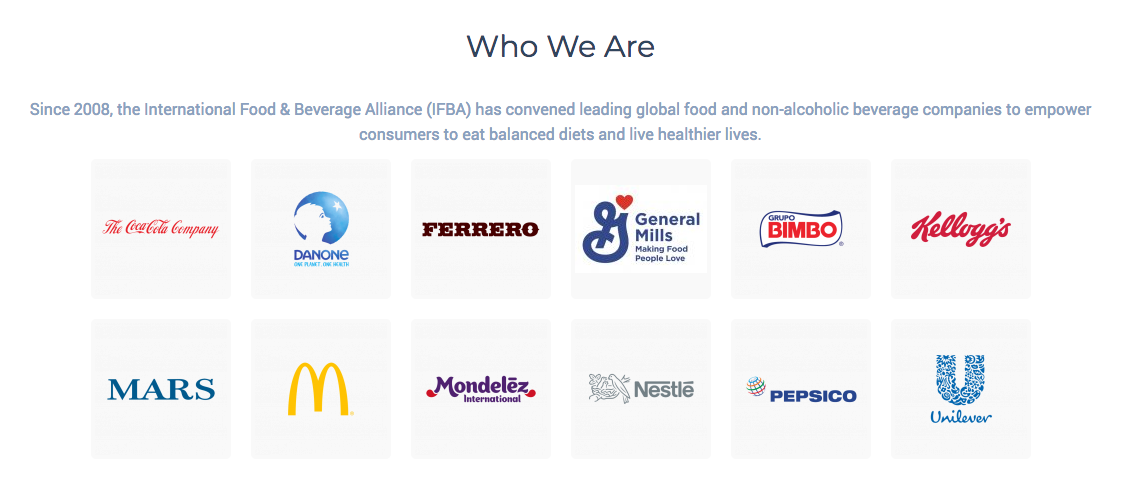145th WHO Executive Board. 29-30th May 2019
The 72nd World Health Assembly in Geneva has now ended CLICK here for IBFAN’s statements. We are also tracking WHO’s transformation processes and governance reforms – and will deliver the statement below today at the Executive Board meeting. With other Civil Society NGOs – as members of the G2H2 hub – we helped craft this statement that highlights some of our concerns. While we strongly endorse it, we do so with one important reservation -we think it is premature and diversionary to refer to a WHO Global Forum, when there are so many problems that need to be addressed, not least WHO’s incorrect Conflict of Interest definition (1) and its Framework for Engagement with Non state actors (FENSA). We attended the very bad WHO forum in Moscow in 2011 so are particularly wary of how easily corporations can influence policies. (2)
IBFAN statement on Agenda item 6.1, “WHO governance reform processes” and sub-item “Involvement of non-State actors” (Document EB 145/4)
IBFAN has worked alongside WHO for about 40 years and has followed WHO’s reform process, often with alarm.
In our experience, when WHA resolutions are translated into legislation, properly monitored, implemented and defended at Codex, they really can and do protect health and have probably saved millions of lives. There is no need to reinvent the wheel. The baby food issue can be used as a model wherever human health is under threat from harmful marketing practices. The call for increased engagement and partnerships with entities that caused these threats will not help. It will lead to misplaced trust, image transfer, confusion and a weakening of resolutions. To stop the public good being subverted, WHO must remind governments that effective legislation, not here-today-gone-tomorrow voluntary commitments, is what’s needed.
We disagree with the statement in report 145/4 that WHO’s constitution ‘forsees’ the participation of NSAs in WHO’s governing bodies. WHO’s basic documents have always been clear that NGOs must be “free from concerns that are primarily of a commercial or profit-making nature.” This is one important reason why FENSA must be evaluated. In allowing Businesses and Philanthropies to enjoy Official Status, WHO has taken a huge leap into the dark. It is vital that the risks of such a fundamental change be evaluated, acknowledged and addressed. There certainly should be no talk of global forums – that can so easily undermine the status of the WHA (2)– before this essential work is done.
WHO has a constitutional duty to consult with civil society as rights holders. Corporations do not have these rights. The term “non-State actors” makes it impossible to see what’s really happening and who is really working for the public good. We even all wear the same colour badges. Fensa also places a huge strain on WHO’s due diligence process.
WHO is clearly under pressure to be less ‘risk averse’, to use FENSA as an enabling framework for undue public-private entanglements, to not bother correcting its own Conflict of Interest definition.[1] We call on WHO to resist such pressure, stay within its constitutional mandate, safeguard its independence, trustworthiness and integrity, WHO’s unique role as the coordinating authority in setting global health norms is at stake. Civil society is there to help.
(1) WHO definitions confuse conflicts of interest within an institution or person with conflicts between actors who have diverging or fiduciary duties (which in the case of corporations is to maximise profits).
(2) The WHO Global Forum in Moscow see press release :WHO Global Forum in Moscow. Tackling food-related diseases: voluntary measures or regulation – carrot or stick?
___________________
International Food and Beverage Alliance (IFBA) creeps closer to WHO
This is an example of the risks of working too closely with food corporations and praising voluntary commitments. While we of course support WHO’s efforts to encourage governments to legally ban industrially produced Transfats (TFAs) Is it really wise to promote the International Food and Beverage Alliance (IFBA)?
IFBA is the front group for 12 of the world’s largest producers of ultra-processed foods, Nestlé, Unilever, Pepsico etc – corporations who have been responsible for much of the global consumption of TFAs for decades. Isn’t one of IFBA’s long-term goals to gain Official Relations status with WHO – and if they get this will they really help achieve WHO’s goals? (The baby food industry ISDI – lost this status in 2013)
Denmark was the first country to mandate restrictions on industrially-produced trans fats. When the trans fat content of food products declined dramatically, cardiovascular disease deaths declined more quickly than in comparable OECD countries.
WHO welcomes industry action to align with global trans fat elimination targets

